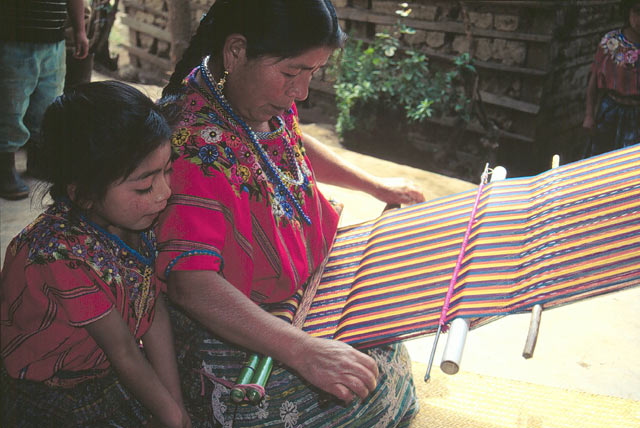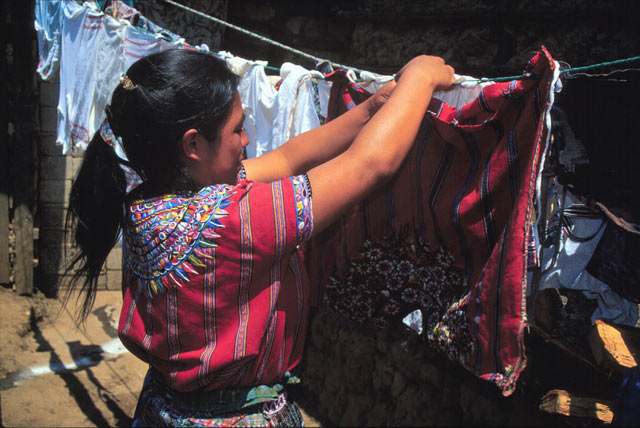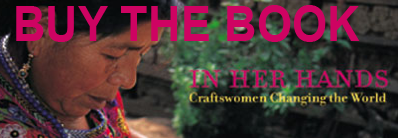It was Benita who approached Vey, her neighbor and friend of seven years, asking her to buy huipiles (traditional blouses) when she and the other women dared to return to Chuinimachicaj in 1984 after the village was safe from violence. And it was Benita who helped Vey establish the first weavers' group.
Fourteen widowed weavers elected Benita their leader. But being the leader was simply a necessity; the accomplishment that made Benita proudest was being able to earn money. "The weaving has been a big help in the village's recovery. It has helped me. I haven't had anything else," Benita tells us. "In the beginning, we were all sad. It helped us to know we were part of a group. We each worked in our own house, but felt we belonged to something."
Education is important to this family, in a country where fifty-five percent of the population is illiterate.
"School expenses are thirteen dollars a month. I can barely give the children money for anything except school," she acknowledges, but reports proudly that her four children are all in primary school.



